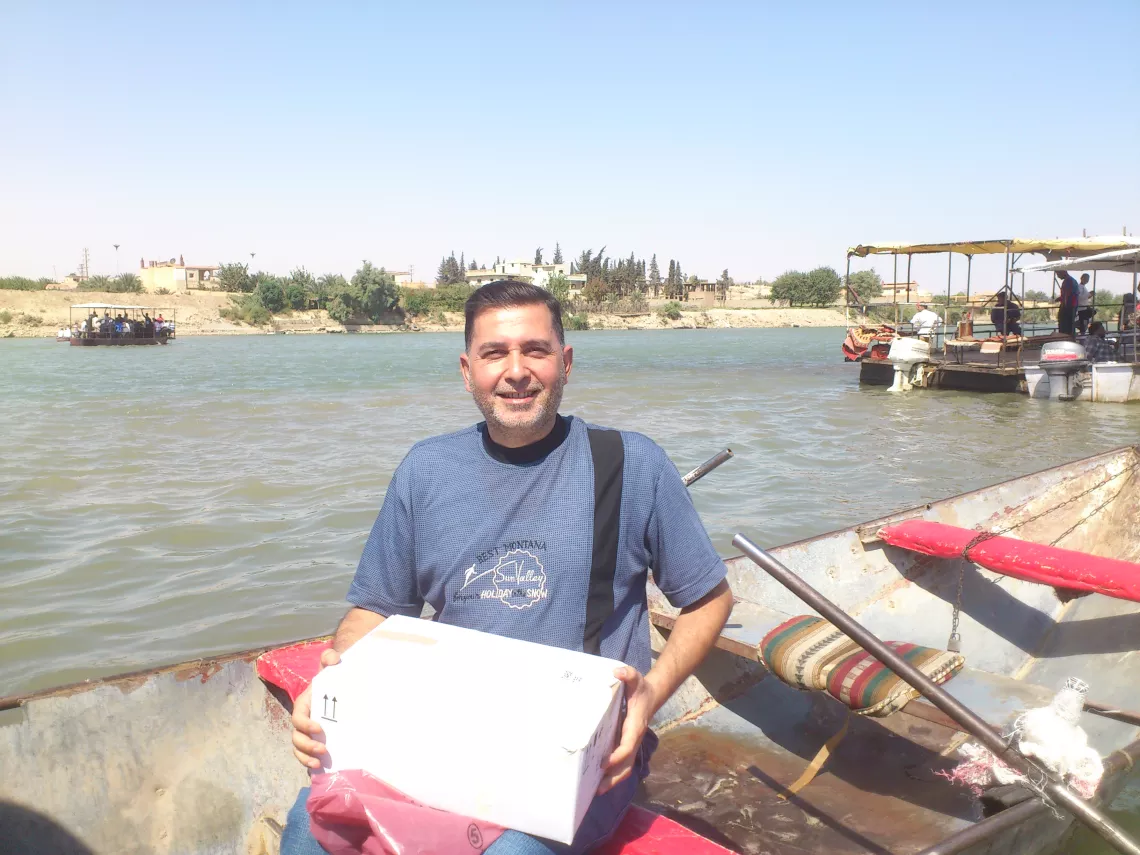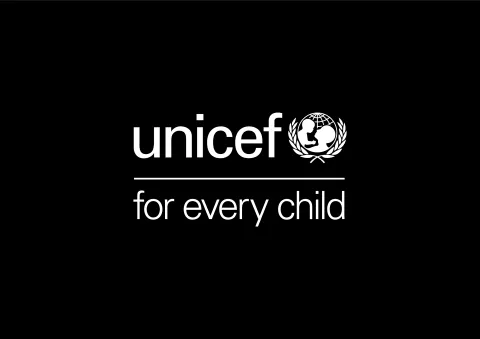“Without our humanity and solidarity, we have very little hope to rise again”
Dr. Suliman Alnajem, Health and Nutrition Officer, UNICEF Syria

“I just felt a great responsibility to stop the outbreak, save innocent children and keep all our hard work from collapsing in the blink of an eye.”
Damascus, Syria, 18 August 2021- When Deir-ez-Zor is mentioned nowadays, people think of an utterly destroyed place, but in the memory of its people, it is still that glorious city that once stood tall on the western shore of the great Euphrates. A place of ancient history and the richest of lands.
At his desk in UNICEF’s field office in Damascus, sits health and nutrition officer Dr. Suliman Alnajem. Suliman, who is known among his colleagues for his shiny smile and sweet spirit, was one of hundreds of thousands of ‘Deiri’ people who had to flee the hell of violence and siege that their city had become.
Today, six years after his last goodbye to home, Suliman is still dealing with the great loss.
Prior to 2011, Suliman says his life was a paradise. After graduation, he got married and started his own dentistry clinic in the same year, 1992. By 2012, the clinic had become a medical centre. “I built it brick by brick and it witnessed all my successes and failures.” Suliman’s family also grew, with four children; two girls and two boys.
Suliman was a family man. “I worked all day, but nights were all for my family. Some of the best memories were the nights we spent out by the river, chatting, having fun and competing with the children in literature and poetry.”

“In my house, I kept my grandfather’s legacy. Items, aged over a century, that I inherited from my father and was going to pass to my children.”
Suliman pauses, takes a deep sigh and adds: “You would never ever be alone among the people of Deir-ez-Zor. If anything befell you, you would be surrounded by relatives, neighbours and friends who would care for and help you.”
A deep sad look engulfs Suliman’s eyes as he continues, “that is what I mourn the most, the city’s history and the great spirit of its people. It’s all gone now. My family’s legacy, everything I built, together with a city’s entire history, while its people got scattered all over the world.”
Suliman’s first displacement was in 2012 when the family fled to Damascus after conflict spiralled in the city. Then, they returned when conflict subsided the following year. Shortly, Suliman started working for UNICEF’s health programme in the governorate. Little did he know that he was embarking on a battle with the first polio outbreak in Syria since 1998 in his very governorate, Deir-ez-zor.
To contain the outbreak, vaccines had to be delivered to over 250,000 children stuck beyond conflict lines. “It was a super dangerous journey, but someone had to do it and I decided it was going to be me,” says Suliman.

At his own risk, Suliman delivered hundreds of thousands of direly needed vaccines across conflict lines. It meant crossing the Euphrates, driving and walking in sniper sight and dealing with threats and endless possibilities.
“It’s not that I was fearless,” suggests Suliman. “I just felt a great responsibility to stop the outbreak, save innocent children and keep all our hard work from collapsing in the blink of an eye.”
But the harshest time yet was when the city fell under siege in 2015. “It was horrific!” recalls Suliman, “Eight months into siege, my 22-year-old daughter weighed only 36 Kilograms.”
When a friend of his lost two of his children, who got hit by a shell as they played near their home, Suliman visited his friend to console him, but what that friend said stamped on his memory forever. “What’s killing me is that they died hungry,” said the friend while weeping.
After eight months of encirclement, Suliman managed to get his family out of Deir-ez-Zor to Damascus once again. “It felt like a new birth,” he says

As he continued his work with UNICEF in Damascus, he was establishing a new life for his family. “I realized that UNICEF colleagues in Damascus had a great appreciation for the work I did in Deir-ez-Zor, and they offered me all kinds of support to settle down in the capital.”
In 2017, Dr. Suliman was assigned as a health and nutrition officer for the southern area in Syria. At the time, East Ghouta was completing five years of siege, so Suliman focused his efforts on supporting and scaling up the nutrition program. “I also worked on perfecting the routine immunization response and supporting implementing partners to leave no area with immunization coverage less than 80%.”
Until this day, Dr. Suliman continues serving children in Syria with an unwavering will, but as he pursues this human call every day, he is concerned deep inside. “Our society has tragically changed as a result of the conflict and its hardships. More people are becoming more opportunistic and less companionate,” he explains. “And without our humanity and solidarity, this country has very little hope to rise again.”




